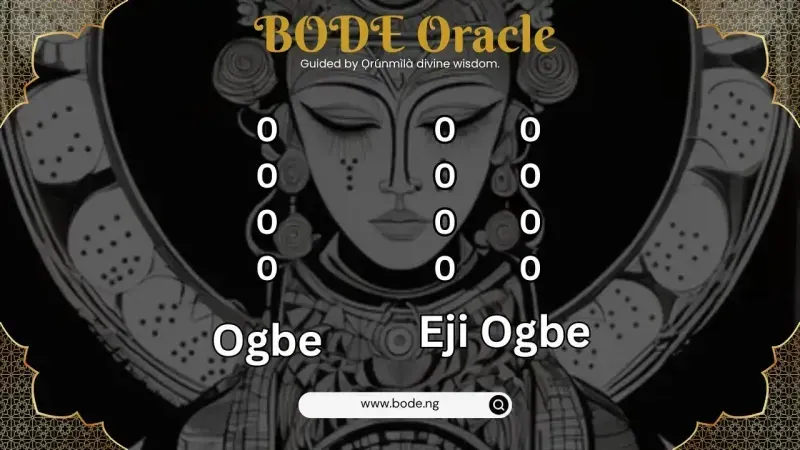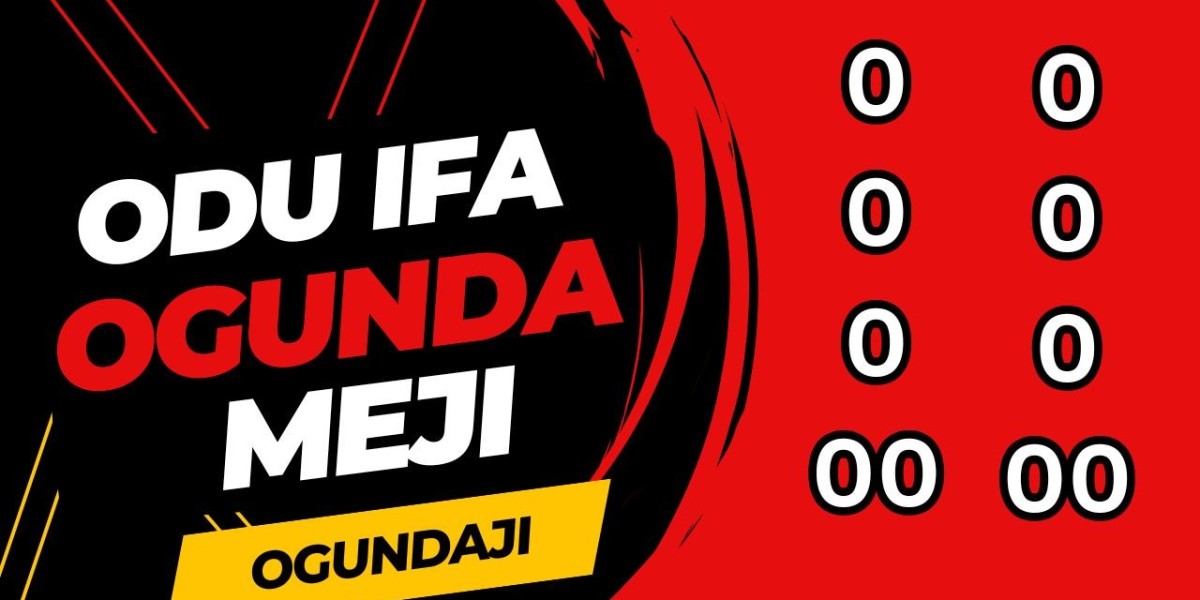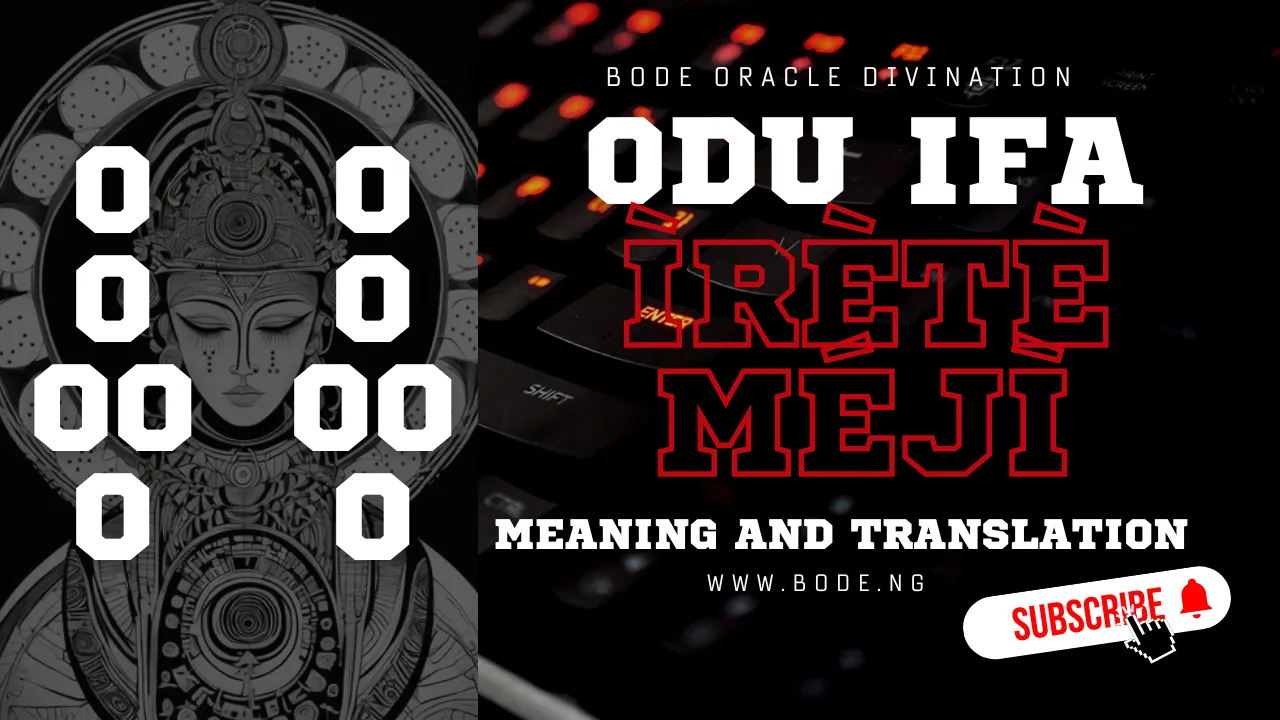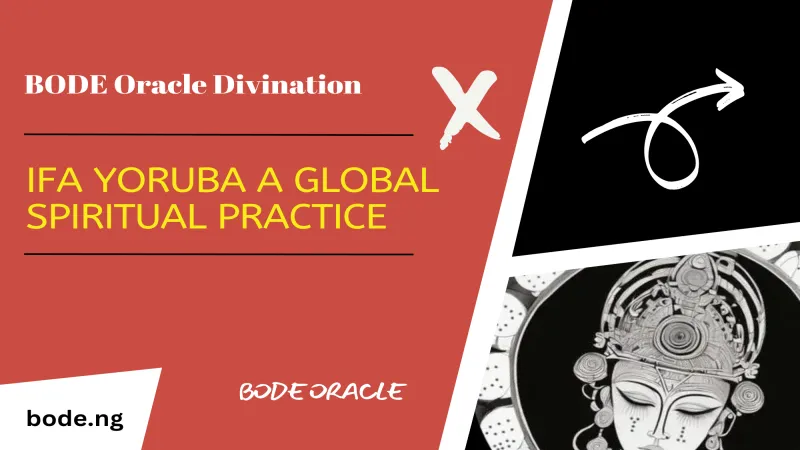Exploring the Differences Between Eji Ogbe and Ogbe: Understanding the Uniqueness Beyond Superficial Similarities between first 16 Odus from Ogbe to Ofun, and the next 16 Odus of the Twin families from Ogbe Meji to Ofun Meji.
In my research on BODE Oracle Divination, I have come to understand that the nuances and distinctions between the Odus of Ifa are often misunderstood or overlooked, particularly in online sources.
This realization has driven me to delve deeper into each Odu, not only relying on the knowledge passed down through my family’s generations of Esiwo but also conducting fresh research to enrich and validate the dataset for each Odu which are currently used in BODE Oracle Divination.
Ifa Divination
The practice of Ifa Divination is a sacred tradition that has been meticulously preserved and passed down through generations in my family.
Each inherited account, charm, sacrifice, healing, and herbal remedy is accompanied by a deep sense of respect for the source, and credits are always given to those who imparted the knowledge.
This practice is not merely a formality but a fundamental aspect of our tradition, one that ensures the authenticity and integrity of the knowledge that is shared.
These are the reasons why I’m writing about the current challenges many people might face relying on online datas which many time might be incomplete, misleading but widely available to the vast majority.
I’ve went through many great papers and insightful researches about Ifa online but even the best of the bests tends to not emphasizes more about the distinctive nature of each odu in Ifa.
However, one critical mistake I’ve encountered in my research is the widespread confusion between similar but distinct Odus, such as:
Ogbe and Eji Ogbe
Ogbe Eji Ogbe
0 0 0
0 0 0
0 0 0
0 0 0
Ogbe, when it stands alone, is fundamentally different from Eji Ogbe, which is a pair of Ogbe.
While their meanings and translations may sometimes appear similar, expert diviners understand that they convey different messages and should not be conflated.
My father, an expert diviner, instilled in me the importance of recognizing these distinctions, and every document I have reviewed from our family archives reinforces this difference.
The significance of the Odu in a divination session is not just about the Odu itself but also about its position in the consultation.
For example, if Ogbe is the first Odu in a divination, it carries a specific meaning, and if it is the last, its meaning changes.
Just as when you’re going through initiation of Ifa. Ifa Adawole or Odu Adawole which means the first Odu that begins the consultation which has significant meaning and will influence every other consultations to be done.
This is a subtlety that only those deeply immersed in Ifa divination can fully appreciate, and it underscores the need for accuracy in understanding and interpreting these sacred symbols.
To illustrate this point, consider the difference between a single pair of Ogbe and a double pair, which we refer to as Eji Ogbe.
Ogbe Eji Ogbe
0 0 0
0 0 0
0 0 0
0 0 0
The term "Eji" means "two," and when that single pair of Odu are put side by side they form another Odu.
Single pair of Ogbe side by side forms Eji Ogbe.
1 Pair of Ogbe Another pair of Ogbe
0 0
0 0
0 0
0 0
Side by side is Eji Ogbe
Eji Ogbe
0 0
0 0
0 0
0 0
Recognize the spacing and don’t contradict it with Oyeku which is:
00
00
00
00
Side by side Ogbe which is Eji Ogbe has its unique interpretation.
Similarly, if during a divination session the final Odu is birthed by a pair of Ogbe, it could lead to the formation of Oyeku, which the Odu is illustrated in the pattern above, is represented differently and has its distinct interpretation.
Ogbe ‘Kanran or Ogbe Okanran
Consider another scenario where, instead of having two pairs of Ogbe, the diviner encounters a combination like Ogbe 'Kanran (Ogbe paired with Okanran).
Ogbe Okanran
0 00
0 00
0 00
0 0
Side by siding the Ogbe and Okanran is called Ogbe ‘Kanran. Check the pattern below:
0 00
0 00
0 00
0 0
Ogbe ‘Kanran or Ogbe Okanran
In as much as this is not the same tells you that Ogbe and Ogbe cannot be the same.
Okanran ‘Gbe or Okanran Ogbe
This combination has its meaning, which differs if Okanran precedes Ogbe, known as Okanran 'Gbe.
00 0
00 0
00 0
0 0
Okanran ‘Gbe or Okanran Ogbe
These subtle variations are crucial and reflect the complexity and depth of Ifa divination.
Yet, many mistakenly view Ogbe and Eji Ogbe as identical, failing to appreciate their distinct characteristics and the unique messages they convey.
The first 16 Odus, often referred to as the Iya Odu or "mother Odus," are the foundational forces that give birth to the remaining 240 Odus.
However, just as in human genetics where a child does not inherit every characteristic of their mother or father, each Odu, while born from a preceding one, is distinct.
This distinction is not merely theoretical but has practical implications in the interpretation and guidance provided by the diviner.
Oyeku and Oyeku Meji
For instance, Oyeku Meji, which is a pair of Oyeku, is different from a single Oyeku.
1 Pair of Oyeku 1 Pair of Oyeku
00 00
00 00
00 00
00 00
Which will give birth to Oyeku Meji below:
00 00
00 00
00 00
00 00
When Oyeku Meji appears in a divination session, it indicates a specific outcome, often leading to the birth of Ogbe.
The interpretation of Ogbe, when it follows Oyeku Meji, is critical and must take into account the influence of Oyeku Meji.
This complex interplay between Odus is what makes Ifa spirituality a deeply intricate and sophisticated system of knowledge, one that requires careful study and respect.
In fact Ogbe verses tells about paying attention to details.
BODE Oracle Divination
At BODE Oracle, we are committed to bridging the gap between traditional Ifa divination and the modern world.
While we are not Babalawo or Iyanifa, our role is to communicate the knowledge of these esteemed figures to those interested in exploring Ifa spirituality.
Many traditional Babalawos and Iyanifas in Yoruba land are custodians of Ifa’s vast data, but the technological challenges of the modern world can make it difficult for them to share this knowledge widely.
This is where misunderstandings, such as the conflation of Ogbe with Eji Ogbe and many like that can arise. Which these experienced custodians knows they are distinct.
Conclusion
In conclusion, the distinctiveness of each Odu in Ifa cannot be overstated. Understanding these differences is crucial for anyone seeking to engage with Ifa spirituality meaningfully.
Ogbe is not Eji Ogbe, just as Oyeku is not Oyeku Meji. Recognizing and respecting these distinctions allows for a deeper and more accurate interpretation of the messages conveyed through Ifa divination, preserving the integrity of this ancient and sacred practice.
Orunmila will shine lights to our pathways.Ase!



